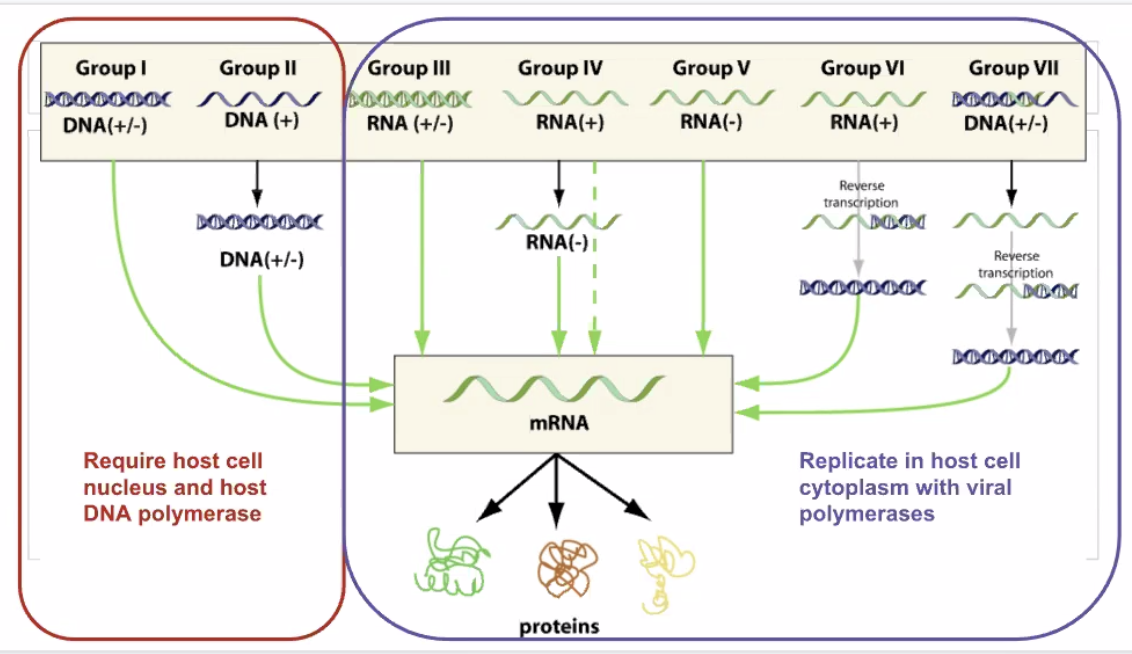Backlinks
1 Types of Viruses
1.1 Categorizing based on infection target
1.1.1 Prokarotic infecting viruses
- Variety of shapes
- Complex and prolate shapes
- Has, sometimes complex shapes! a la this image
- Usually transmits using the DNA
1.1.2 Eukarotic infecting viruses
- Much more "boring" in terms of shape
- Icosahedral/spherecial outside
- Enveloped constructions => envelope protein layer outside, spherical inside
- Helical/Cylindrical/Bullet shapes, too!
- Often single patterns assemble together to create symmetric shape that creates the whole of the virus
- Usually transmits using the RNA
1.2 Categorizing based on genetic code
1.2.1 DNA Viruses
- "Legacy support" viruses
- DNA viruses are "less complex", in that as long as they are able to get into the nucleaus, the rest would just be the body's work automatically.
- They are clunkier, more stable, and hence harder to KBhBIO101ViralGeneticModulationMutation, which is good for you but bad for the virus
1.2.2 RNA Viruses
- RNA viruses are considered to be the "next-gen" viruses
- They infect much more easily => do not require the process of transcription
- Contain more intricate processes to be able to interact with the cell properly

Figure 1: Screen Shot 2020-11-02 at 2.48.22 PM.png